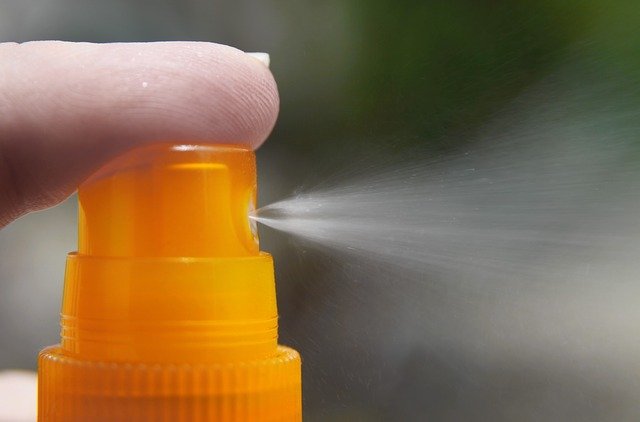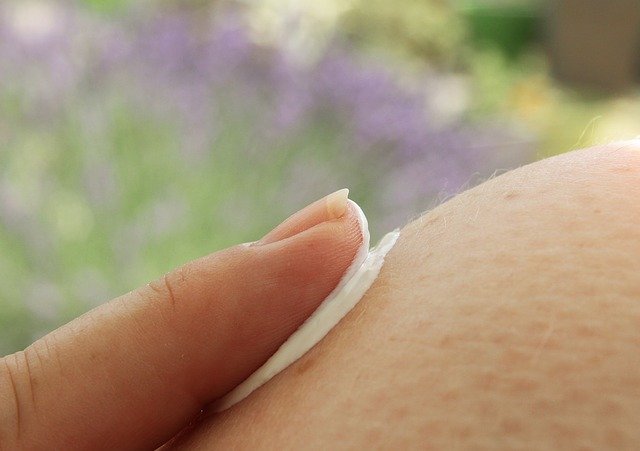Before we go on and answer the question above, Zinc Oxide Sunscreen or Titanium Dioxide Sunscreen, first let’s concentrates on the question that matters more, and that is, why sunbathing can be harmful for your skin. Almost for certain, major part of the people who will read this will ignore it the next time they visit the beach. However, also a major part of the readers will protect their children the next time they take them on the beach, even on the mountain, even maybe in your own backyard!

You’ve all gotten sunburns, exposure to too much sunlight can cause them, or even more precise, exposure to the UV (Ultraviolet) light causes sunburns. There are two types of UV, UVA solar radiation that causes skin wrinkling, and skin aging, and this radiation penetrates deep in the skin, but does not cause sunburns. The other type, UVB, causes sunburns! Your skin when exposed to UVB light produces melanin, and that is why you get tanned, it is your body normal response to threat, trying to defense itself by producing darker skin color. Unfortunately, your body can only do that much for some period of time, then it just cannot produce enough. It is then you get sunburned, and it is then the penetration of UV radiation in our skin is greater, and it is then our DNA can change and develop cancerous skin cell. This is why sunbathing can be harmful, and this is why it is so important to use sunscreen every time, and everywhere you are exposed to the sun radiation for longer period of time.
Titanium Dioxide Vs. Zinc Oxide in Sunscreen
Using the right sunscreen is very important, and when you live in time where you care about your health, and the intake of harmful compounds in your body, it is only rightful to choose the “chemical free sunscreen”. That is mineral sunscreen containing Zinc Oxide or Titanium Dioxide as their only active ingredient, with few differences between the two types.

Titanium dioxide comes from titanium, white chalky material, and also among other thing, very reflective. Zinc oxide in its natural form also very effectively reflects and blocks sun lights.
Size does matter!
Zinc Oxide, being composed of larger particles, offers better protection from UV radiation, but offers less transparency than Titan Dioxide. The second, being composed of smaller particles offers bigger transparency, but slightly less UV protection. Again, the choice is yours and yours only! Because in their “natural” form they are both chalky and white, and leave white chalky appearance when applied to the skin, sunscreen manufacturers today try and make the materials particles smaller, Titanium dioxide between 10 and 100 nanometers (nm), and Zinc Oxide from 30 to 200 nm. This particle size is small enough to be more transparent, but yet not small enough to penetrate the skin.
Skin irritation
Two different sunscreens can have different impact on your skin. Titanium dioxide is considered non comedogenic because it does not contain oil that can keep skin pores from breathing. On the other hand, the bigger particles of Zinc Oxide can have an impact on the skin breathing, possibly causing some skin irritation, but also Zinc Oxide is antimicrobial, and works wonders on skin wounds (small wounds, normally), and is also very effective in treating warts, treating acne, reducing dandruff, preventing aging, and many other benefits.

Titan dioxide carries a big negative one also! The problem is, when exposed to UV light, titanium dioxide in one of its form release free radicals. The unwanted form is anatase, and the wanted harm-free form is rutile, however, you can never be too sure of the type of titanium dioxide your sunscreen producer is using (X-ray can prove the type, if you have one!).
Zinc dioxide also is slightly more effective in blocking UVA radiation, which is considered as the main reason for skin cancer, because it penetrates deep in to the skin. Both sunscreens offer physical protection from the sun, which is always better than chemical.
Regarding allergies, both sunscreens are generally safe, but never 100 %. Just in case, try rubbing your child with one of the sunscreen (only a small patch), and wait for a couple of minutes. As already mentioned, the protection is physical, so you should not see some chemical allergenic reaction. The best thing about both Zinc and Titanium is you don’t have to apply it 30 minutes prior to sunbathing, it works instantly.
Finally, if you have to choose, probably the better choice for you and your children is Zinc Dioxide, offering better UVA protection, and as good as UVB protection from Titanium Oxide. It might be a bit heavier on the skin, which is why maybe the best thing is to start with Zinc Dioxide, and transfer to Titanium Dioxide in few days. Of course, do your research, and check the manufacturer’s product history, the origin of the minerals is very important, they should be natural, and in the non harmful form also.
Something at the end!
Regardless whether your choice is Zinc Oxide or Titanium Dioxide, bear in mind that the sun can be very harmful for your skin. You need only 15 minutes three days per week to fill up Vitamin D, the rest of the time you don’t have to stay in the sun. Always use sunscreen, prefer SPF 30, no less, and despite the sunscreen, and stay as much as you can in the shades. Avoid staying in the sun from 12 to 16 afternoons during summer; the sunscreen can protect you, but never 100%! Be smart, cover all your body parts, your feet, and your ears, your eyelids, which are the parts that are usually left forgotten, and usually sunburned. And when applying your sunscreen, if you are using spray, try and spray it on your palms and then cover your body, because sprays as attractive as they look, are probably the least effective, because they spray almost everywhere, but your skin. Follow this few advices, and have a lovely and carefree summer!
Sources include:
– http://www.netdoctor.co.uk/conditions/skin-and-hair/a3629/sunbathing/
– http://www.telegraph.co.uk/news/health/3318636/Does-sunbathing-really-have-to-be-bad-for-your-health.html
– http://www.mayoclinic.org/diseases-conditions/sunburn/symptoms-causes/dxc-20323221
– http://www.prevention.com/beauty/skin-care/titanium-dioxide-sunscreen-can-change-dna
– http://www.instyle.com/beauty/best-zinc-oxide-sunscreens
– http://www.ewg.org/sunscreen/report/nanoparticles-in-sunscreen/
-https://www.ewg.org/skindeep/ingredient/726566/TITANIUM_DIOXIDE_(sunscreen_grade)
– https://draxe.com/zinc-oxide-benefits/
– http://www.livestrong.com/article/289935-titanium-dioxide-vs-zinc-oxide-in-sunscreen/
– http://www.reviews.com/sunscreen/
– https://www.uvicube.com/blogs/news/zinc-oxide-vs-titanium-dioxide-the-scoop-on-sunscreen
– https://www.futurederm.com/which-is-better-zinc-or-titanium-oxide-in-sunscreen/
– https://www.drbaileyskincare.com/info/blog/are-zinc-oxide-sunscreens-better#.WVvtX4SGPIU
– http://www.livestrong.com/article/289935-titanium-dioxide-vs-zinc-oxide-in-sunscreen/























